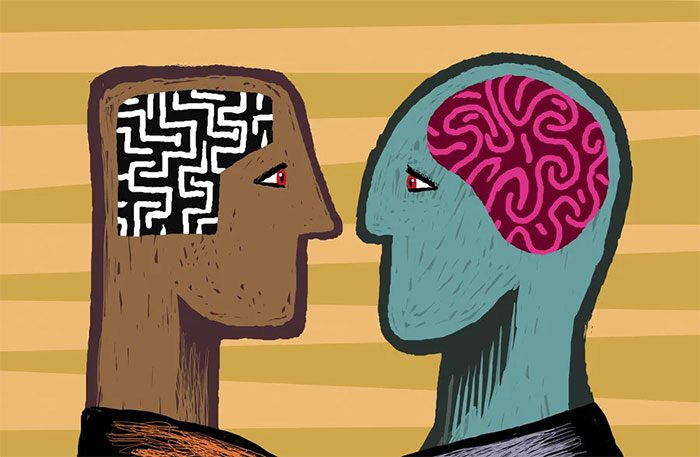According to scientific research, introverts are more likely to achieve great things.
If you closely observe the life trajectories of successful individuals around you, it’s not hard to notice that most of them have spent some time alone at various points in their lives.
As a consultant, I am fortunate to have met many people, and I have also been lucky to see the true nature behind countless masks.
My career has always made me subconsciously observe everyone I meet, their achievements and personalities. Upon deeper examination, I am often surprised by unexpected facets…
01
Not long ago, I had a conversation with an old friend I hadn’t seen in a while.
The quiet boy from years ago has now become charismatic, polite, and approachable in his conversations, displaying a logical sharpness and a demeanor reminiscent of a leader.
Upon asking, I learned that last year he was promoted to Senior Director of a listed company, and his career is flourishing.
On my way home, I couldn’t help but think of him; a person who once lived very introvertedly, that image is now gone.
Back then, many classmates even teased him, saying he was socially awkward and didn’t want to play with them. But if we were to meet again today, who would be the hero? It would be immediately apparent.
When I got home, I recalled an article I had read, stating that 76% of successful people in the world are introverts, quiet individuals, such as the genius physicist Einstein or the stock investment sage Warren Buffett.

Introversion is positively correlated with emotional intelligence and reasoning accuracy. (Illustrative image).
In a psychological study conducted in 2018 by Yale University, it was also found that introversion is positively correlated with emotional intelligence and the accuracy of reasoning about social psychological phenomena.
Questions began to arise: Are introverts more likely to succeed?
02
The famous Swiss psychologist, Carl Jung, was the one who classified human personalities into extroverts and introverts.
These two personality types correspond to two kinds of people in life: the lively, cheerful individuals and the quiet ones.
There is no direct comparison between the two personalities; for example, in childhood, if a child is particularly quiet, teachers will encourage the child to speak more and be braver, while for an especially extroverted child, teachers will strictly hold them back.
It is difficult to assess which personality is better.
Both personalities can only be viewed based on the principle of specifically analyzing particular problems. However, based on my professional experience and personal life, being an introvert is “not simple at all.”
First of all, why does a person become introverted? Excluding medical reasons, it’s usually due to:
First, feeling alienated from their current environment and unsure of what to do, resulting in silence and spending time in a daze.
Second, they are often more educated than their peers; they understand that talking too much can lead to mistakes. For them, listening is more important than expressing themselves. Through observation and reflection, they grasp the overall situation and ultimately make wise decisions.
This is also why during university, when the class faced difficulties, there was always a quiet “hero” ready to step up and easily solve the problem.
The same can be said for Steve Jobs, the founder of Apple, who, according to his autobiography, was quite introverted and had a rich inner world.
This is why he could comfortably speak in press conferences and captivate fans from around the globe.
From here, we can infer that those who don’t speak much are not necessarily lacking in social skills.
They simply prefer not to engage in meaningless exchanges.
03

Those who don’t speak much are not necessarily lacking in social skills. (Illustrative image).
Speaking of extroverted personalities, throughout life, one will always encounter many extroverts. They take pride in their eloquence and can befriend anyone; their exuberance is the most fitting description of them.
However, if you maintain a long-term relationship with an extrovert, you may notice that when facing tough times in life, their resilience is much poorer than their outward appearance suggests.
The British personality psychologist, Hans Eysenck, once proposed the “Awakening Theory.” The main content states: “Compared to talkative individuals, quiet individuals have a better ability to identify and filter accurate information.”
In other words, when you try to communicate with an introvert and do not receive positive feedback, it is very likely that they have already recognized that what you are about to say next is meaningless.
The truth can be harsh, but if this happens to you, please do not take it too much to heart.
Finally, why not ponder why more than 70% of successful people in the world are introverts?
This is because while ordinary people sit there complaining about their surroundings without any sign of taking action to change, merely scrolling through social media, those who are often regarded as “socially awkward” by others have suppressed their so-called desire to express themselves, spending more time looking inward to improve themselves. Thus, when making decisions, they are the wisest ones, also finding ways to maximize benefits.


















































